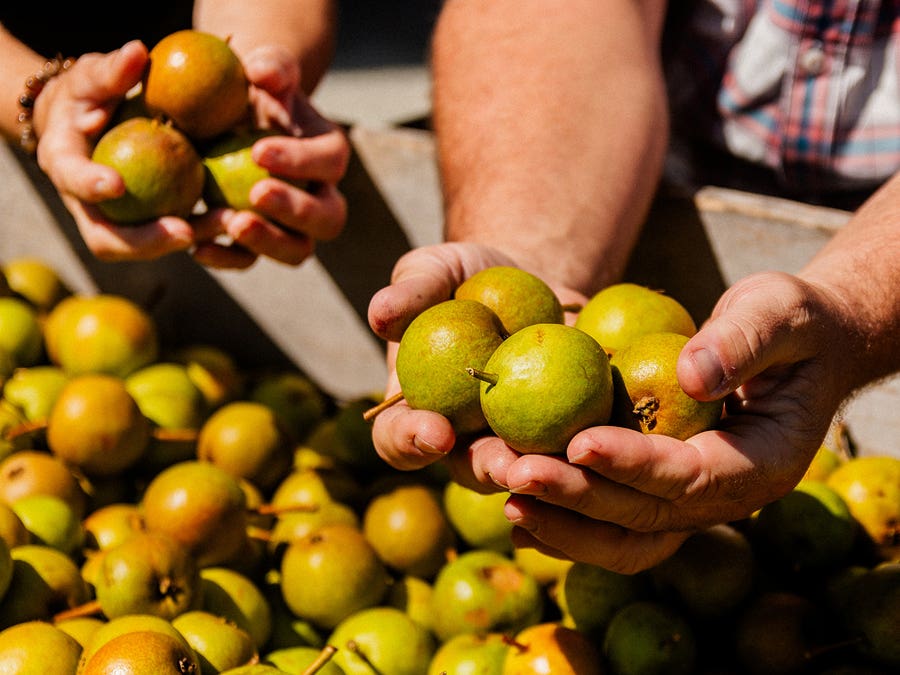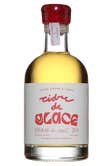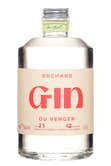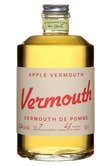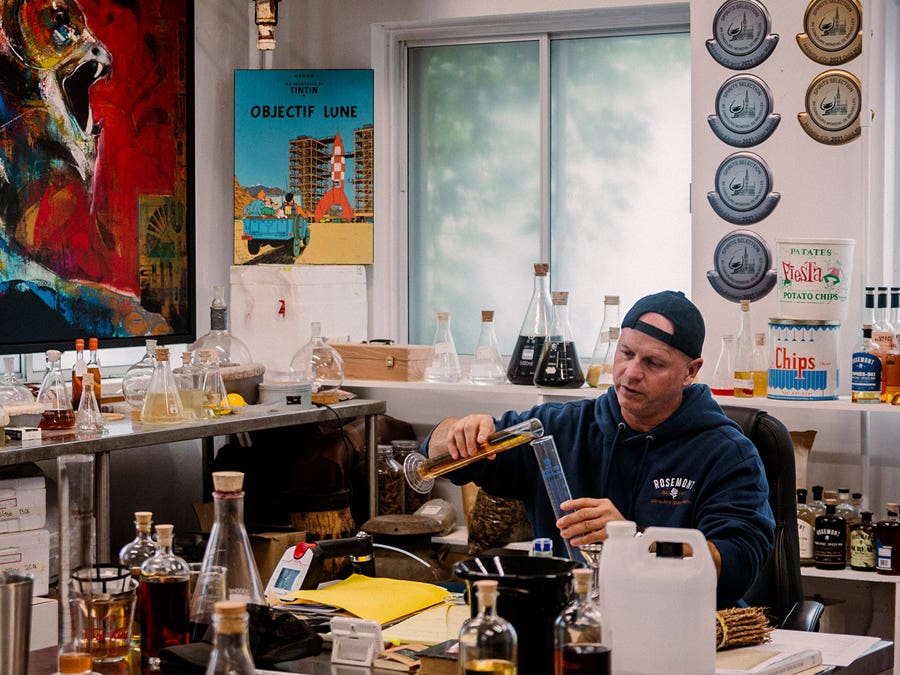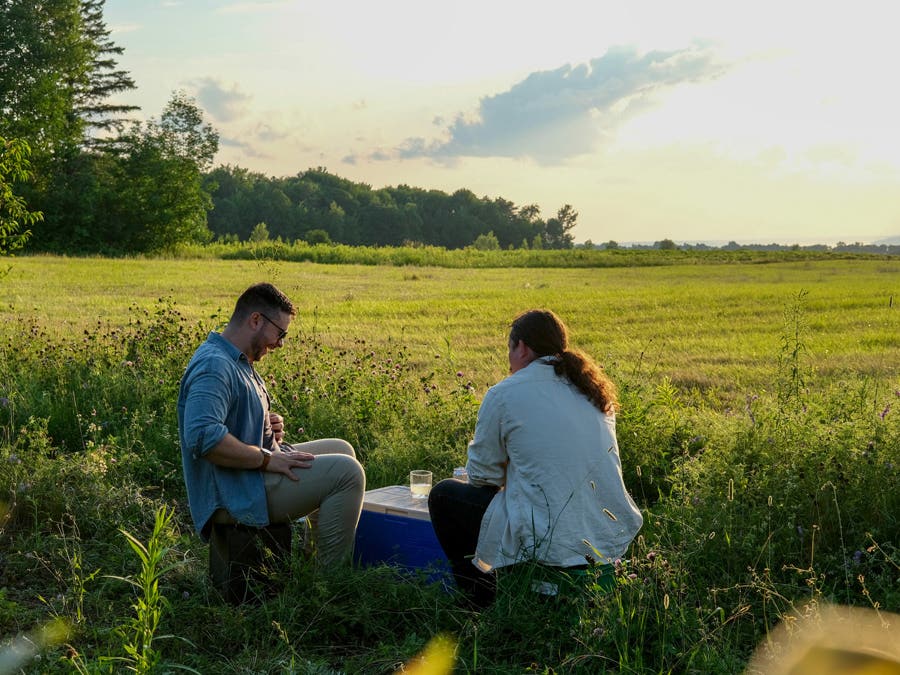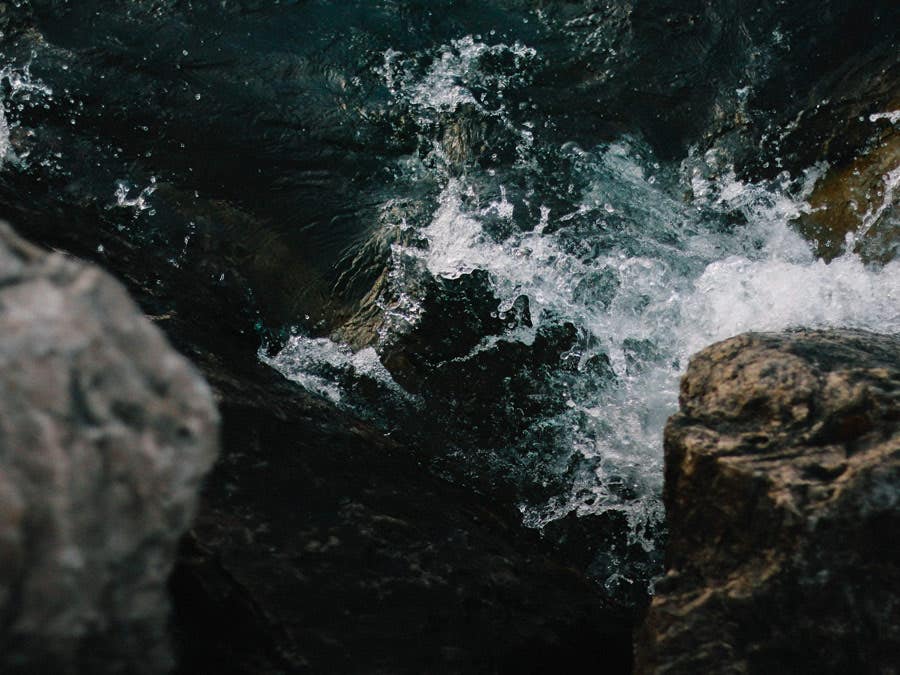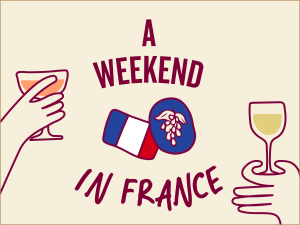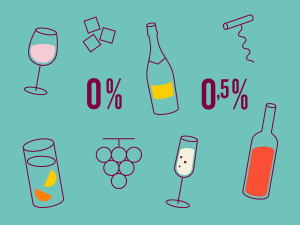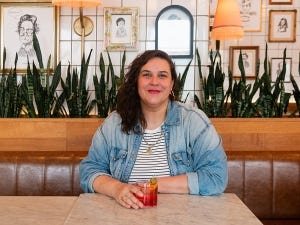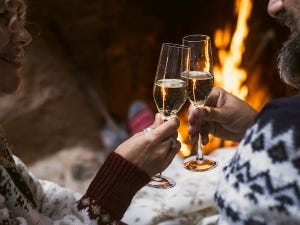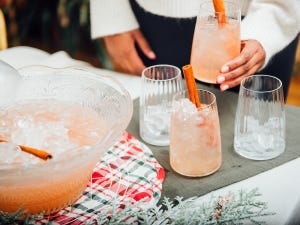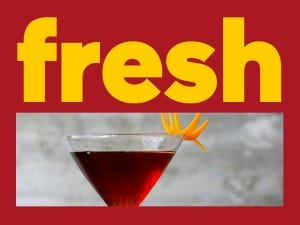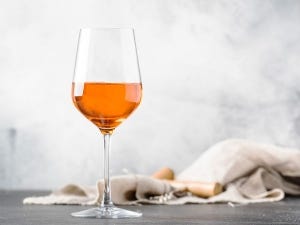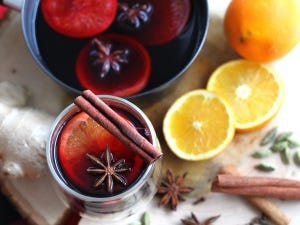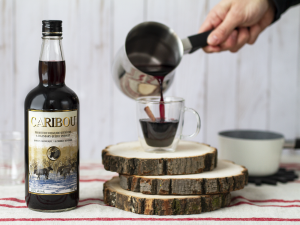Loïc Chanut would love to lead multiple lives. That way, he could unleash his creativity as a cider maker and distiller while also experimenting with fruit tree growing. “There are only seven days in a week,” he lamented. Since founding the Entre Pierre et Terre cider house in 2009, he and his wife, Michelle Boyer, have had plenty to keep them busy in their orchard. The couple grow some 20 varieties of pear and 12 varieties of apple, as well as gooseberries, blackcurrants, raspberries, blueberries, cherries, and kiwifruit.
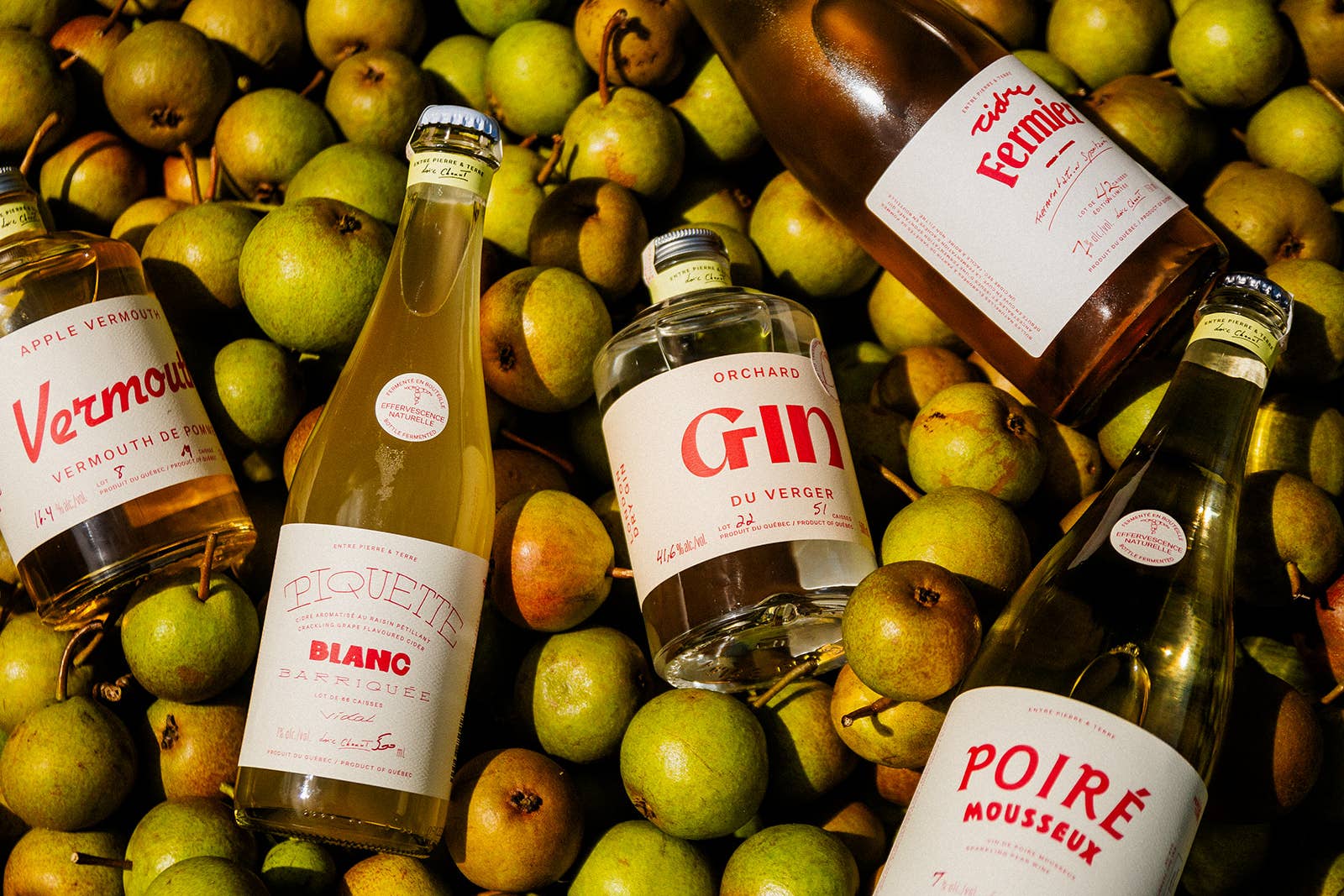

Their specialty lies in developing varieties of fruit specifically to be used in their alcohols. “The beauty of tree production is that you can graft different species together. For the past few years, after a lot of trial and error, we’ve been creating cultivars whose fruits are great for making alcohol,” said Loïc. In an average year, his orchard produces close to 20,000 bottles. Early on, he focused on sparkling pear and apple cider, as well as pear ice wine and ice ciders, before acquiring a still in 2018. “That’s when things started getting out of control! We started making an increasing number of spirits, liqueurs and aperitifs,” he added.
Nothing goes to waste
Loïc says he’s lost count of how many different alcohols he’s made. “Most of them were limited-edition products—small batches or single barrels. We like to play around and try new things,” he explained. Since taking up distillation, the winemaker by trade has been able to get even more creative. “We don’t use any processing aids or sulfites in our fermentation. If we miss the mark and the product ends up too tart or too bitter, we can now distill it to make brandy. It gives us more freedom to experiment,” he noted.
And it’s not only failed attempts that are found in Loïc’s still, but also the pomace obtained from the fruit pressing. One example is the frozen apples and pears that he makes his ice wines and ciders with, and of which he uses every last bit. “The residues are full of pulp and juice. Now, instead of discarding them, we upcycle them through distillation,” he explained. That’s how he obtains the neutral alcohol in which he macerates herbs and fruits to create his Orchard Gin, Apple Vermouth and Pear Liquor. An added bonus: This gives him 100% control over what’s in the bottle. “By making our own white brandy, we can be sure there are no GMOs in our products,” he added.
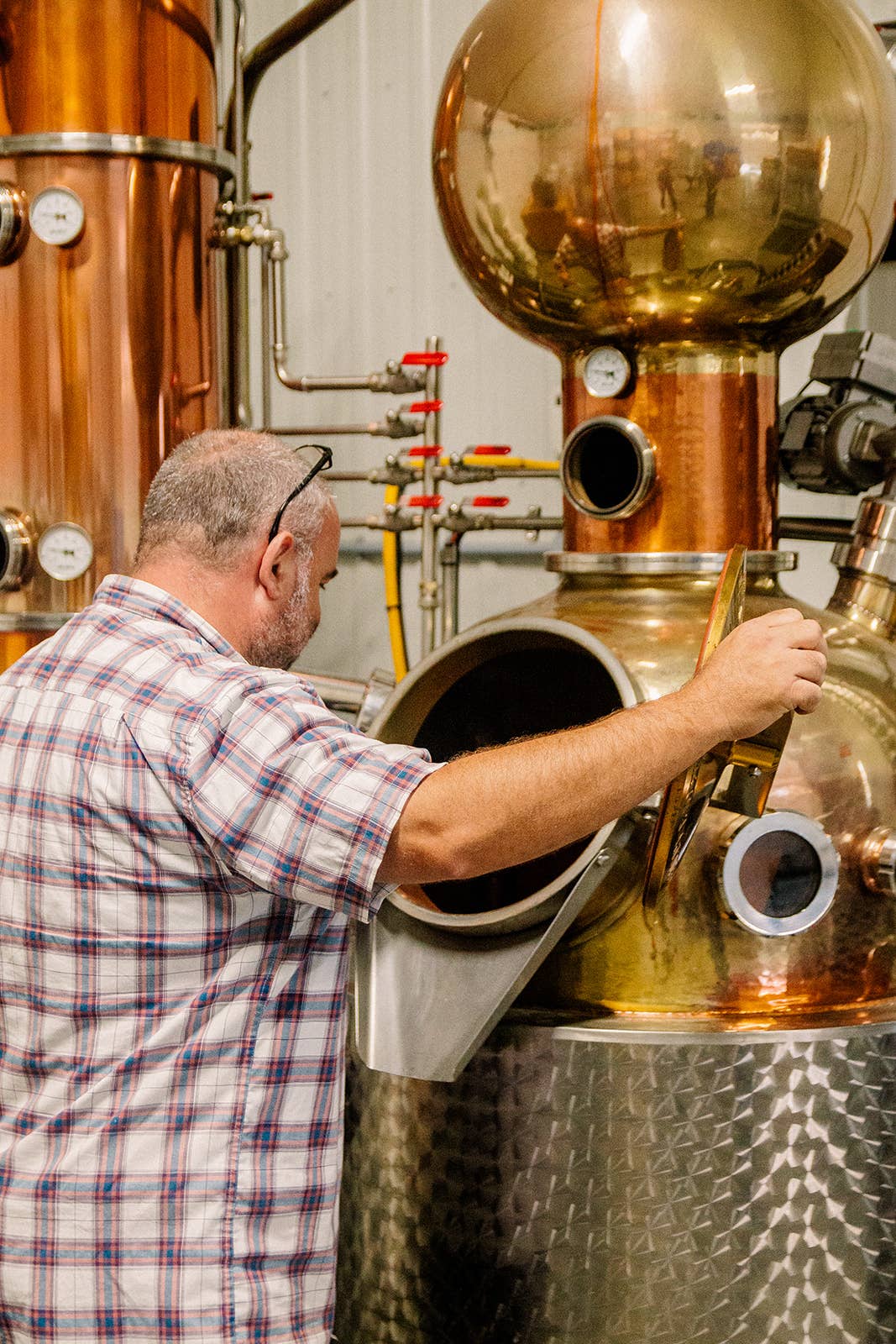

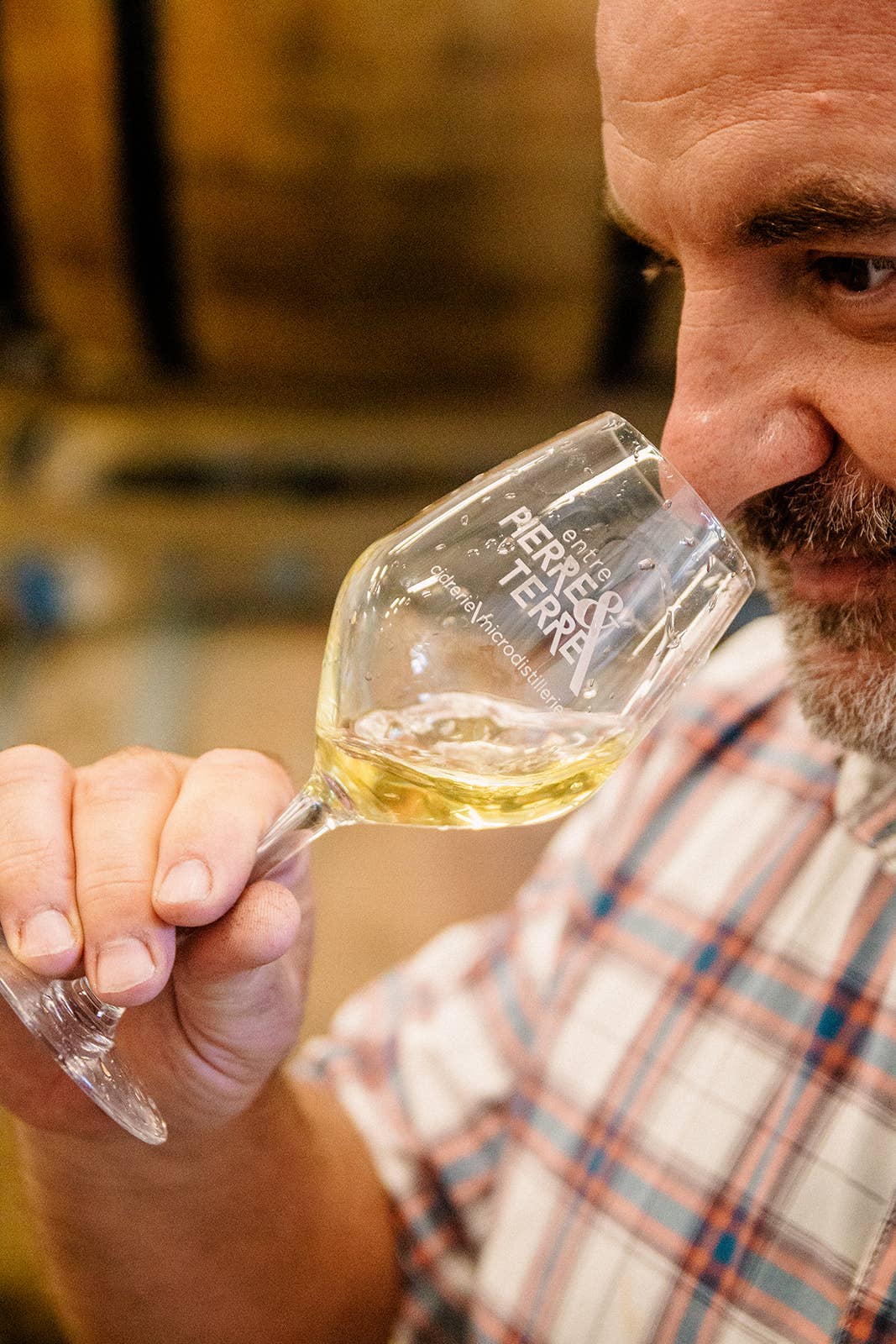

It all goes to good use
Recently, Loïc started recovering his neighbours’ residues, too. With the vidal grape pomace from Vignoble du Marathonien, he makes piquette, an alcoholic drink that’s similar to seltzer. “The timing was good—right now, people are really into beverages that are lighter in alcohol and not too sweet,” he noted. By pushing the limits of experimentation a bit further, he realized that the tart berries from his orchard produced good results—it didn’t matter whether they were blackcurrants, raspberries or gooseberries. “Now when we make liqueurs with berries, we rinse the pomace with water to make piquette,” he explained.
Today, the owners of Entre Pierre et Terre no longer sell part of their harvest at the market, since 100% of their fruits get processed. All thanks to Loïc’s still. Yet, the guy who went as far as to macerate the leaves of a raspberry bush to add some bitterness to a vermouth he was making says there are limits to recycling fruit. “Once we’ve reused the pomace, there’s nothing more we can do with it. We spread it on the fields to fertilize the soil and feed the deer,” he said. Nonetheless, he gets satisfaction from repurposing the fruits of his labour. “It’s a shame to work so hard in the fields and then throw out whatever alcohol doesn’t make the cut,” he remarked. He may only have one life to live, but he can give a second one to his fruits.
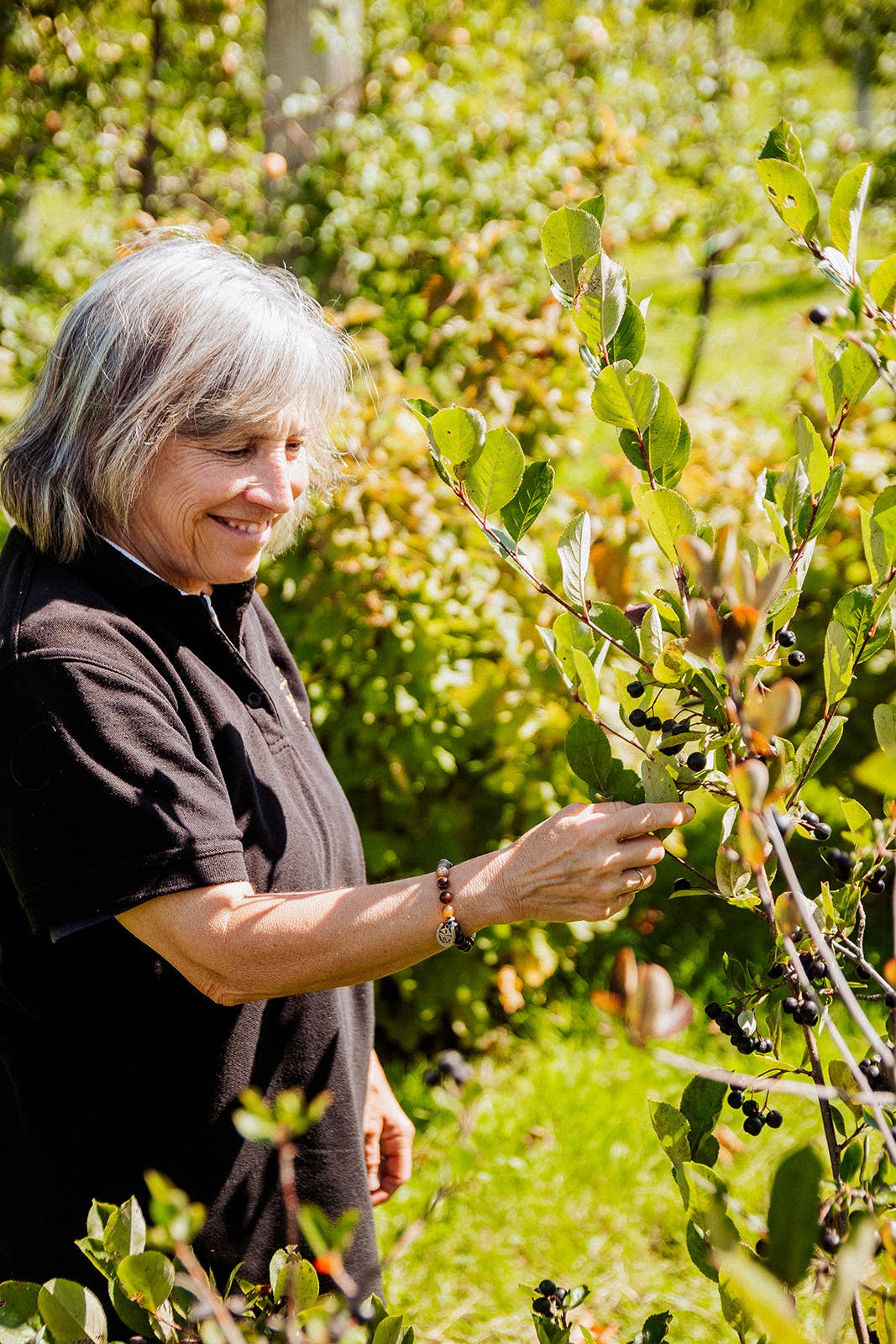



Discover Entre Pierre et Terre's products
We recommend
-
Read more
At the corner of Chapleau and Masson in Montreal’s Rosemont neighbourhood, Lilian Wolfelsberger is constantly experimenting. The co-founder of Distillerie de Montréal took us behind the scenes in his lab and revealed the creative process behind his chocolate and pineapple spirits.
-
Read more
What does a meadow, river or forest taste like? That’s a prickly question! One we boldly try to answer by exploring the province in the hopes of discovering Quebec’s taste profile, a bit like a large herbarium of flavours and aromas.
-
Read more
The main ingredient in Quebec spirits is our precious blue gold. Each bottle of locally made gin and vodka contains a bit of our terroir. Here’s how our waters add to their unique flavour.
 Access to SAQ Inspire personalized services and store inventories are unavailable at the moment.
Access to SAQ Inspire personalized services and store inventories are unavailable at the moment. Free in-store delivery with purchases of $75+ in an estimated 3 to 5 business days.
Free in-store delivery with purchases of $75+ in an estimated 3 to 5 business days. 
